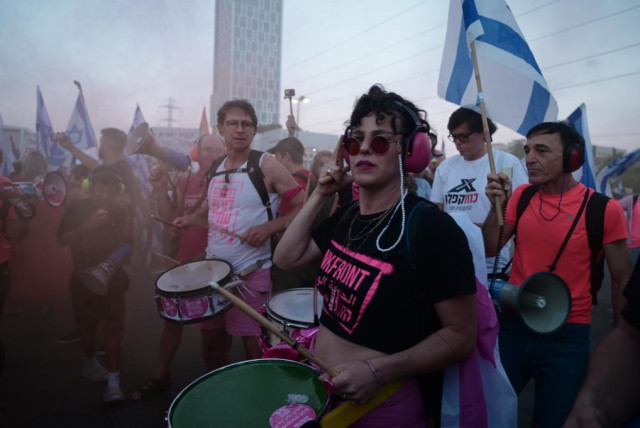Gender segregation in Bnei Brak is a good thing - opinion

Maybe you highly educated and discerning women could still learn a thing or two from the women of Bnei Brak, and from their approach to the institution of marriage.
On the evening of Thursday, August 24, a group of protesting women took to the streets of Bnei Brak, an Israeli city that is considered 100% ultra-Orthodox. The protesters appeared 100% non-Orthodox.
Ostensibly outraged by what they perceive to be increasing gender segregation in Israel, particularly on public transportation, they widely publicized the demonstration in advance imploring secular women to join them because: “Atrocity is happening in Bnei Brak, women are being discriminated against and they need our support and help.”
This is exactly how they phrased it. The Israeli zeitgeist right now appears rife with angry protests – some justified, some not.
In a world so full of offensive and repugnant chauvinism, I’d be thrilled if those demonstrating for women’s rights would stop wasting their time and resources on Bnei Brak. Why not look for those places where women are objectified? Where they’re belittled? Where they’re constantly betrayed?
Women aren't objectified in ultra-Orthodox Judaism, they are segregated
Haredi society has always sanctified the institution of marriage. From an early age, the ultimate aspiration of every haredi boy and girl is to marry and establish a home. A home that builds character, a home that empowers, but also offers a sense of serenity. A home in which the wife knows that her husband is hers only, and the husband knows likewise that his wife has chosen to build her life with him and that she doesn’t look elsewhere.

This central principle is reflected in the community’s way of life, particularly the separation between males and females in the ultra-Orthodox common space. If Halacha, Jewish law, permits relationships between men and women only for the purpose of marriage, then gender separation is clearly required in every other area. From the age of three, classrooms are separate; men and women occupy different parts of the synagogue; even family occasions are conducted in a state of gender separation.
At a haredi wedding, men sit on one side of the hall and women on the other. Usually, a partition is set up between them. This is not exclusion, and there is no element of discrimination in the practice. The conditions in girls’ schools or in the women’s sections of celebration halls are not inferior to the conditions enjoyed by the males. The principle is strictly observed and is at the core ultra-Orthodox life.
The cynical exploitation by self-interested or political parties of situations arising from the principle of separation is patronizing and pathetic.
It is my right as a woman to decide to live in a space where there is segregation between the sexes. No one forced me to be ultra-Orthodox, I do not force anyone else to be ultra-Orthodox and do not impose my worldview on anyone else. But if someone chooses, of their own free will, to enter a haredi space, I expect them to behave with a modicum of politeness and to respect the wishes of the community. Just as they would remove their shoes upon entering a mosque, without feeling coerced or discriminated against.
Haredi tradition respects the woman; Halacha enjoins the husband to love his wife “as himself,” and to honor her “more than himself.” It’s worth looking into why the divorce rate in ultra-Orthodox society is currently less than a third of the divorce rate in the broader Israeli public.
Before you come in droves to “educate” the women in Bnei Brak, you really ought to stop and think twice. Maybe our way of life has some advantages. Maybe you highly educated and discerning women could still learn a thing or two from the women of Bnei Brak, and from their approach to the institution of marriage.
The writer is a senior fellow at the Jewish People Policy Institute (JPPI). The mother of 12 children, she is a member of Israel’s ultra-Orthodox community. Ravitz served as chief-of-staff to the 10th president of the State of Israel, Reuven (Ruvi) Rivlin.
